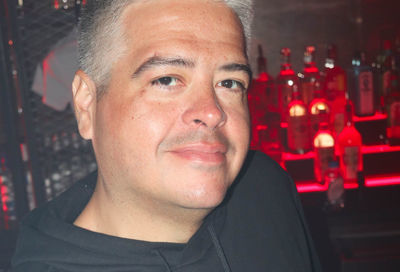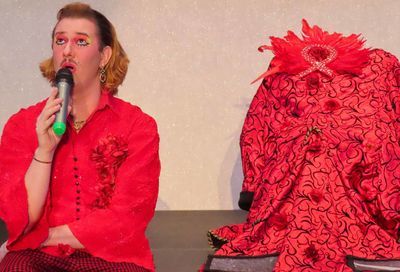Marriage Showdown at State Senate
Maryland Gov. O'Malley testifies in support of bill extending marriage equality to gays and lesbians
The Maryland Senate Judicial Proceedings Committee heard more than four hours of testimony Tuesday from supporters and opponents of marriage equality as part of the debate over Senate Bill 241, a bill to legalize same-sex marriage in Maryland, recently introduced by Gov. Martin O’Malley (D) as part of his 2012 legislative agenda.
O’Malley appeared at the Jan. 31 hearing as the first witness to testify in favor of the bill, appealing to lawmakers to provide protections for children of same-sex couples, who currently do not receive the same benefits as children of opposite-sex couples.
 O’Malley also emphasized that this year’s bill includes more protections for religious leaders and churches and ”balances equal protection of individual civil marriage rights with the important protection of religious freedom for all.”
O’Malley also emphasized that this year’s bill includes more protections for religious leaders and churches and ”balances equal protection of individual civil marriage rights with the important protection of religious freedom for all.”
The bill, if passed, would not require any members of the clergy to perform marriage ceremonies that violate their religious beliefs, and would allow churches or church-operated and church-run organizations, such as a Knights of Columbus, to continue to discriminate based on their religious views.
The committee – eight Democrats and three Republicans – passed last year’s marriage-equality bill on a 7-4 vote, and is expected to do so again this year. All three Republicans and Sen. Norman Stone (D-Baltimore Co.) opposed the measure, both in committee and on the floor, when the bill passed the full Senate last year 25-21.
Other lawmakers, including Sens. Rich Madaleno (D-Montgomery Co.), Allan Kittleman (R-Carroll, Howard counties) and Jamie Raskin (D-Montgomery Co.) also testified in favor of the bill Tuesday.
Raskin, who also serves on Judicial Proceedings committee, was asked by Sen. Christopher Shank (R-Washington Co.) during his testimony about the lack of protections for individuals and businesses who oppose marriage equality. Raskin countered Shank’s line of questioning by pointing out that Maryland in 2001 extended nondiscrimination protections in public accommodations to include sexual orientation, saying, ”We’ve already crossed that bridge.”
The hearing featured other witnesses ranging from concerned citizens to labor unions to national organizations, and there were so many observers present that a second room had to be opened for the overflow.
Various clergy and people associated with religious organizations spoke on both sides of the debate, either touting the religious protections as a benefit or saying that they didn’t care about personal protections for ministers if their parishioners were also unable to refuse to acknowledge same-sex unions.
The Rev. John T. Crestwell Jr., associate minister at the Unitarian Universalist Church of Annapolis, said he didn’t always support marriage equality, even though governors have been debating the issue since Gov. Parris Glendening (D) was in office. Crestwell said he struggled with the issue as one of religious liberty, but decided that personal religious beliefs should not affect the granting of a civil marriage license.
”We cannot allow our private [opinion] to dictate public policy,” Crestwell said.
But Mary Ellen Russell, executive director of the Maryland Catholic Conference, objected to equating heterosexual marriage with homosexual unions, saying they were not the same thing. Russell, echoing other witnesses, questioned why the General Assembly couldn’t pass civil unions as an alternative to gay marriage that would grant the rights same-sex couples seek.
However, Russell later had to backtrack from that position upon being questioned by Raskin, saying that the position of the Catholic Church has been to oppose civil unions as well.
Other opponents called toward the end of the hearing were less civil in their opposition, claiming that gay marriage would be forcibly taught in schools, that the ”gay agenda” is to undermine society, that marriage equality threatens children, and that gays are ”abominable” and innately ”wicked.”
Many opponents, particularly African-Americans, objected to the classification of marriage equality as a civil right, and one man testified that O’Malley should be impeached and removed from office for overstepping his bounds as executive in submitting the bill.
But the Rev. Elder Darlene Garner, herself an African-American and bishop of Metropolitan Community Churches, said the bill was about allowing two people to enter into a legally binding agreement. Echoing the testimony of other marriage-equality supporters, Garner urged the committee to pass the bill.
”It is the right, the moral and the just thing to do,” she said.
Support Metro Weekly’s Journalism
These are challenging times for news organizations. And yet it’s crucial we stay active and provide vital resources and information to both our local readers and the world. So won’t you please take a moment and consider supporting Metro Weekly with a membership? For as little as $5 a month, you can help ensure Metro Weekly magazine and MetroWeekly.com remain free, viable resources as we provide the best, most diverse, culturally-resonant LGBTQ coverage in both the D.C. region and around the world. Memberships come with exclusive perks and discounts, your own personal digital delivery of each week’s magazine (and an archive), access to our Member's Lounge when it launches this fall, and exclusive members-only items like Metro Weekly Membership Mugs and Tote Bags! Check out all our membership levels here and please join us today!



















